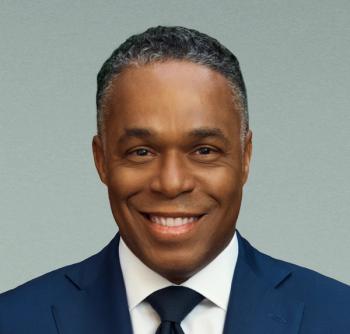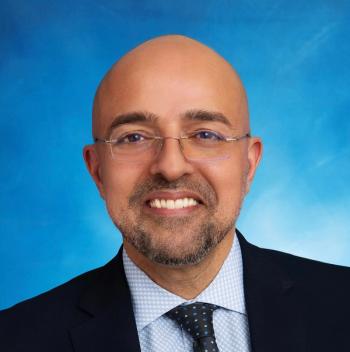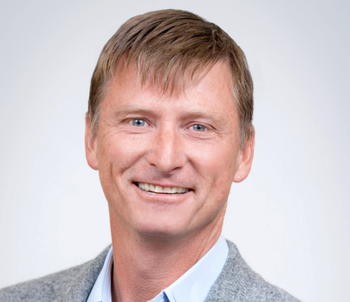
Even With Vaccines, PPE Remain an Important Layer of Protection Amid COVID-19 Surge
A provider of personal protective equipment (PPE) discusses the continued importance of PPE, vaccine mandates and healthcare workforce shortages amid the surge of COVID-19 cases due to the Delta variant
As the COVID-19 global pandemic continues, access to personal protective equipment (PPE) remains important for both the general public and healthcare workers. However, the vaccines are an important layer of protection against the vaccine. The Biden administration’s
Chief Healthcare Executive (CHE) recently spoke with Roman Vinfield, chief revenue officer of WeShield about the importance of PPE, vaccine mandates and healthcare workforce shortages all amid the surge of COVID-19 cases due to the Delta variant.
Editor’s note: this interview has been edited for clarity
CHE: Roman, tell me a little bit about yourself and the company that you work for?
Roman Vinfield (RV): I'm the chief Revenue Officer for WeShield. WeShield is a company that we started, my partners and I started, during COVID. Both of our businesses closed. We're out in the New York, New Jersey area. And so, we started donating and helping in the tri-state area. We went ahead and started to help first with masks…and then it just kind of spiraled and grew and turned into a medical supply company.
We were ranked 53rd fastest growing company in the United States last year by Inc 5000. And so we were acquired by Optec International…earlier this summer. And yeah, our goal is to help stop the spread of COVID-19….So, we have Wellstar, which is a major hospital chain, Quest Diagnostics, Gap, Gucci, Caesars, and the Defense Logistics Agency. Those are some of our customers.
CHE:Now we have vaccines, but even with the vaccines, what is the role that PPE will continue to play in healthcare settings as the COVID-19 pandemic continues?
RV: I think that's a question that a lot of people are asking. You know, unfortunately, and probably, as a surprise to a lot of people — probably not as a surprise to the immunologist community and a lot of doctors — this virus continues to evolve. And whereas the vaccine is 90 some odd percent effective against the original COVID-19 variant, the Delta variant, according to different studies — from Israel, they saw only 40% protection, and in the United States, somewhere in the 60% to 75% range, which creates penetration and breakthrough cases.
So, the vaccines we have are no silver bullet. Although, it's a miracle that we were able to develop them so quickly and so safely and with the efficacy that they have, the vaccines, unfortunately, don't kill the virus. What we're seeing is they prevent you from getting really sick and going to the hospital and dying. And so, in that environment, the virus continues to evolve. Unfortunately, you have to still have the PPE — the masks, the gloves, you know, whatever the case, depending on what you're looking to do, to prevent as much as possible of the virus getting to the person and from diminishing the viral load that you get if you're not protected.
CHE: As the science of how COVID-19 spreads improves, as we get to understand a little more, what do we learn about how much he what types of PPE needs to be worn?
RV: So, I think masks are obviously, something that's mandatory. Also, depending on where you are, with masks, if you're in more of a medical scenario, you definitely want an N95 or a KN95. If you are in an everyday environment, I think that the three plies are probably your best bet. The cloth masks: people wear them, and they're better than nothing, but they really let a lot of droplets through, and it's definitely not ideal if you're looking for real protection. So, N95 is definitely the way to go, if you're in a kind of target-rich environment. And then other than that, I would say, three ply.
CHE: How do hospitals work with like a company like yours to make sure that they keep the right level of supply on hand and avoid shortages?
RV: We help numerous organizations and what happened was, we were born out of the supply chain really breaking down to the demand spiking. And so, we were able to be a lot more agile and purchase and acquire goods, both from United States manufacturers—people that had goods on the ground—and then also manufacturers out of China and Thailand.
There’s obviously medical supply companies like Cardinal, McKesson, etc, and so, we positioned ourselves where we are a secondary supplier, and we make sure that they have, you know, somebody to turn to, almost like an insurance policy, right? And what we saw the first time around is that the days of, “Well, I go on McKesson’s website and order stuff,” now it’s a “Fool me once, shame on you; fool me twice, shame on me” type of situation. So, that's where, we come in to make sure that you have a reliable source that was there reliably and was able to execute during the toughest times.
The Delta variant kind of showed it again, and now people really understand that having a secondary supplier is a must. In the beginning you had people saying, “Well it kind of happened once, but now they're back.” And now they see that that's just not a strategy. We had hospitals out of Florida, cancer hospitals, that were literally weeks away from closing, because they didn't have chemo-rated gloves. It's not a way to run a business when it comes to people's lives and healthcare. So, we are a secondary supplier, and we make sure that we have the goods necessary to backstop any potential losses.
CHE: Last year, PPE was the biggest way to protect against COVID-19 and it remains an important tool, but we do have those vaccines available now. For healthcare workers who have hesitated to get the vaccine, how do we persuade them to finally get it?
RV: I think education and numbers. I think FDA approving the vaccine was a big step forward, because unfortunately, and this goes for both sides, the vaccines became politicized. Before the election, you had the Democrats saying, “Well, Trump, he's pushing things through, he's rushing things,” and now, you're having, the Republicans saying, “Well, it's our freedom” and things like that. And it's really about healthcare, right? It shouldn't be politicized. And I think that the FDA approving the vaccines goes a long way. I think putting in a convenience also is going to drive one type of behavior. If there is mandatory testing in place, and it's inconvenient, then, obviously, it works as a cudgel to get people to get vaccinated. And I think with education and time, I think we're going to get to where we need to go.
CHE: In July, major associations like American Nursing Association, the American Hospital Association, they really supported these vaccine mandates for healthcare workers. Why do you think they had to take such a strong stance and other vaccines, like for influenza, have already been mandated for this population of workers? Is it just the politicization or is there something else going on?
RV: There are some people that are honestly hesitant. You have a portion of people, obviously, that are anti-vaxxers, that are not going do anything, regardless of what you tell them. And those people are in the medical healthcare industry as well, right? You know, before the COVID-19 pandemic started, you've seen measles outbreaks in our society. So, I think there's some of that. I think, again, there's people that are that are truly worried because of the emergency use authorization and how quickly it came about. And so, I think that's where the hesitancy started from.
CHE: There's already a healthcare shortage among nurses and doctors. There are concerns that vaccine mandates could exacerbate that. What can hospitals and health systems do to ensure they're not losing workers amid a medical capacity surge while they're treating these COVID-19 cases?
RV: Yeah, that's definitely a tough situation. We work in partnership with several companies where we provide testing, mobile testing, and vaccinations. And so, it's definitely something that we're seeing, and we're trying to assist with. And I think the fact that they’re going to be mandated at this point to do it, it's going to drive people to get it done. I don't think there's an easy solution out of it. I think they're trying to do what they can.







































